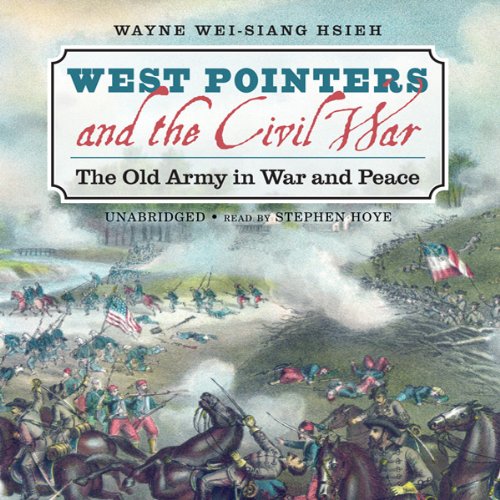
West Pointers and the Civil War
The Old Army in War and Peace
Failed to add items
Sorry, we are unable to add the item because your shopping cart is already at capacity.
Add to basket failed.
Please try again later
Add to wishlist failed.
Please try again later
Remove from wishlist failed.
Please try again later
Adding to library failed
Please try again
Follow podcast failed
Unfollow podcast failed
£0.00 for first 30 days
Pick 1 audiobook a month from our unmatched collection - including bestsellers and new releases.
Listen all you want to thousands of included audiobooks, Originals, celeb exclusives, and podcasts.
Access exclusive sales and deals.
£7.99/month after 30 days. Renews automatically. See here for eligibility.
Buy Now for £18.99
No valid payment method on file.
We are sorry. We are not allowed to sell this product with the selected payment method
Pay using card ending in
By completing your purchase, you agree to Audible's Conditions of Use and authorise Audible to charge your designated card or any other card on file. Please see our Privacy Notice, Cookies Notice and Interest-based Ads Notice.
-
Narrated by:
-
Stephen Hoye
About this listen
activate_Holiday_promo_in_buybox_DT_T2
Critic reviews
Most Civil War generals were graduates of West Point, and many of them helped transform the U.S. Army from what was little better than an armed mob that performed poorly during the War of 1812 into the competent fighting force that won the Mexican War.
"Hsieh challenges studies that have argued that field fortifications and rifles gave the advantage to defenders, insisting instead that other factors, such as leadership, morale, and troop strength were more influential in success or failure. Smart and genuinely stimulating, West Pointers and the Civil War will be controversial in the best sense of the word." (Joseph T. Glatthaar, author of General Lee's Army: From Victory to Collapse)
"Hsieh challenges studies that have argued that field fortifications and rifles gave the advantage to defenders, insisting instead that other factors, such as leadership, morale, and troop strength were more influential in success or failure. Smart and genuinely stimulating, West Pointers and the Civil War will be controversial in the best sense of the word." (Joseph T. Glatthaar, author of General Lee's Army: From Victory to Collapse)


















